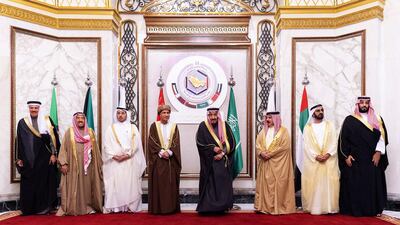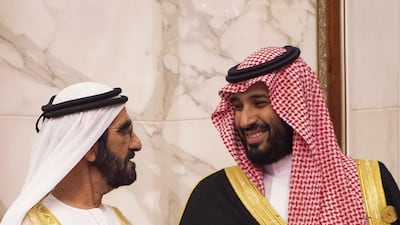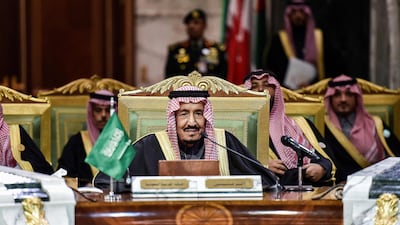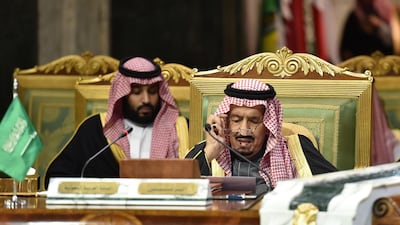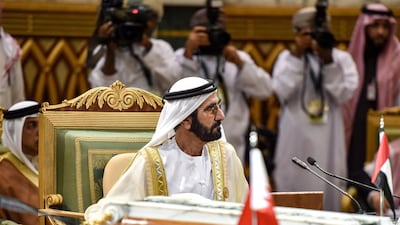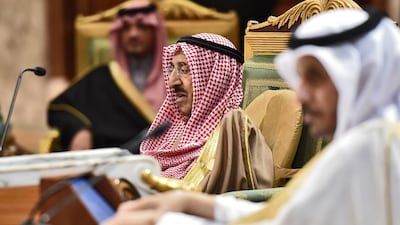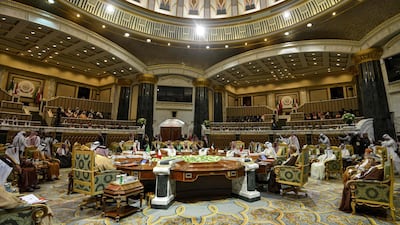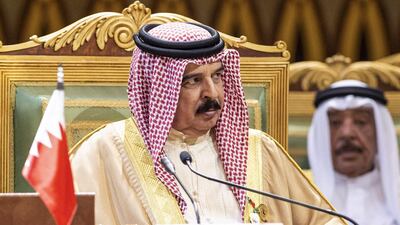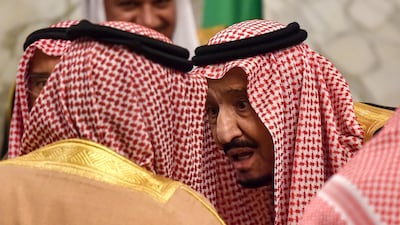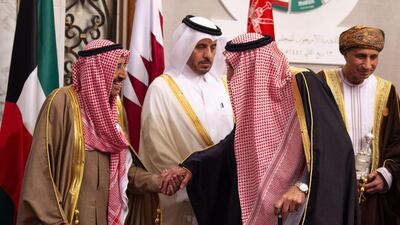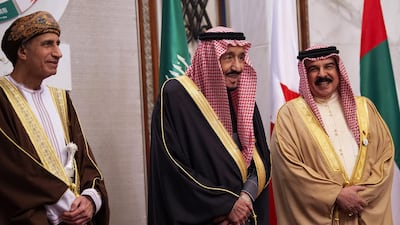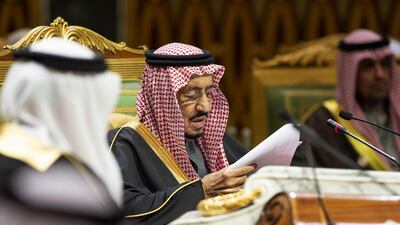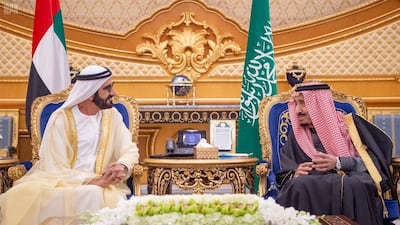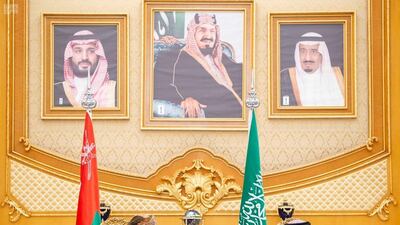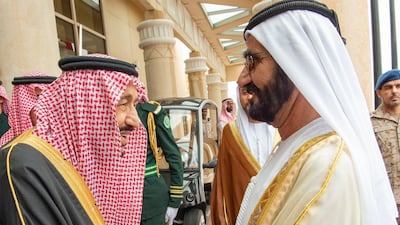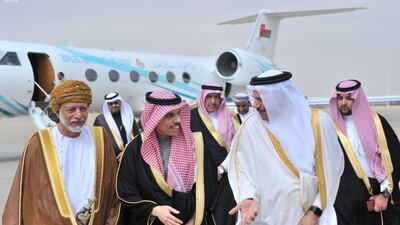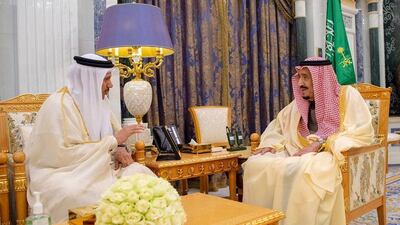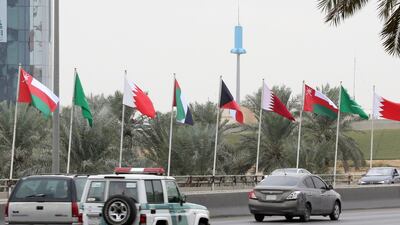Gulf leaders agree that “long-term, genuine grievances” must be addressed to resolve the internal dispute with Qatar, the UAE’s Minister of State for Foreign Affairs, Dr Anwar Gargash, said on Wednesday.
Saudi Arabia, the UAE and Bahrain cut relations with fellow GCC member Qatar in June 2017 because of Doha's interference in other countries’ internal affairs and support for terrorist groups including the Muslim Brotherhood. Egypt joined the boycott.
The GCC's 40th annual summit on Tuesday had raised hopes of a breakthrough in resolving the dispute, but this did not occur.
“We are not there yet. That is the view from the Riyadh Summit,” Dr Gargash said on Twitter.
The Qatari Emir, Sheikh Tamim, was invited this year, providing an opportunity to ease tensions between the four Gulf states.
In the past couple of years, Doha has sent lower-ranking officials. Sheikh Tamim did not appear, sending instead the Prime Minister, Sheikh Abdullah bin Nasser Al Thani.
Bahrain's Foreign Minister, Sheikh Khalid bin Ahmed Al Khalifa, said Qatar had shown "a lack of seriousness" by sending a representative “who lacked any authority or instruction to end the dispute”.
But Samuel Ramani, an expert on international relations at the University of Oxford, said the presence of Sheikh Abdullah, the highest-ranking official sent by Doha since 2017, suggested there was hope for reconciliation. But several issues remained, he said.
"While Qatar has reportedly mulled suspending ties with the Muslim Brotherhood, it is unclear whether it will actually make this change in foreign policy," Mr Ramani told The National.
The summit followed a year in which there were attacks on shipping in the Gulf and on Saudi oil installations, which have been linked to Iran as retaliation for US sanctions.
In his opening address, Saudi King Salman called for regional unity to confront Iran and secure energy supplies and maritime channels.
Kuwait’s Emir, Sheikh Sabah, who long worked to resolve the Qatar dispute, commended Saudi Arabia's call for unity.
Addressing King Salman, Sheikh Sabah said: “God willing, the coming meetings will be better than past meetings.”
The Saudi Foreign Minister, Prince Faisal bin Farhan, said mediation was continuing but was better conducted away from the spotlight.
GCC Secretary General Mohammed Al Zayani said the bloc was seeking to approach the dispute on two fronts – through mediation, and through economic, social and political measures.
“We are moving along two axes," Mr Al Zayani said on Tuesday night. "The Emir of Kuwait is mediating between all concerned parties.
"The heads of state have commended His Highness for his efforts and thanked him, and the mediation is still ongoing."
At the same time, Gulf heads of state are looking at “separating the co-operation of day-to-day business, military, social, culture and economic co-operation from the issue”, he said.
Despite the dispute, Gulf leaders at the summit agreed to move ahead with achieving regional economic integration by 2025, including through a financial and monetary union.
“The challenges facing the region require a strength in co-operation between member states on the economic, cultural, security and political levels that will implement free-trade negotiations,” the summit statement said.
The GCC members agreed to set up a financial and economic co-operation committee to help “set up a joint Customs union, to amend the unified Customs tariff, taxes and the Gulf common market", the statement said.
The financial union would in theory ensure the GCC upheld its initial purpose, which was to enable regional economic co-operation, Mr Ramani said.
“But as diversification plans and budget deficits vary across the region, the risks of creating an overly centralised monetary policy remain," he said.
"We need only to look at the euro experience to remind ourselves of that.”
For the financial union to work, Gulf states must have greater mobility of economic and human capital, and deepened trade links, Mr Ramani said.
